#the kenny paradox
Text



Character sheets from my South Park Death Reset Au comic on TikTok. More below cut.
This is kind of just where everyone is at the beginning of the story.
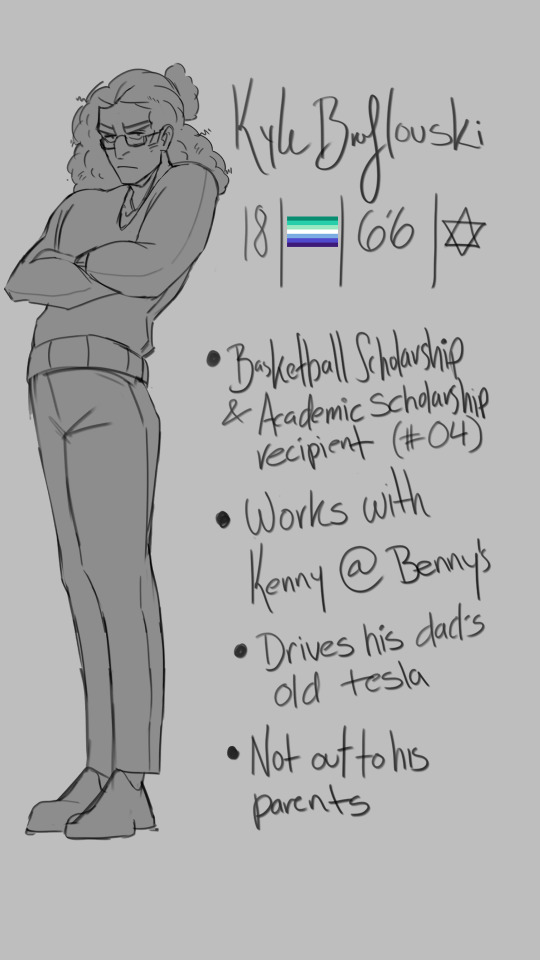


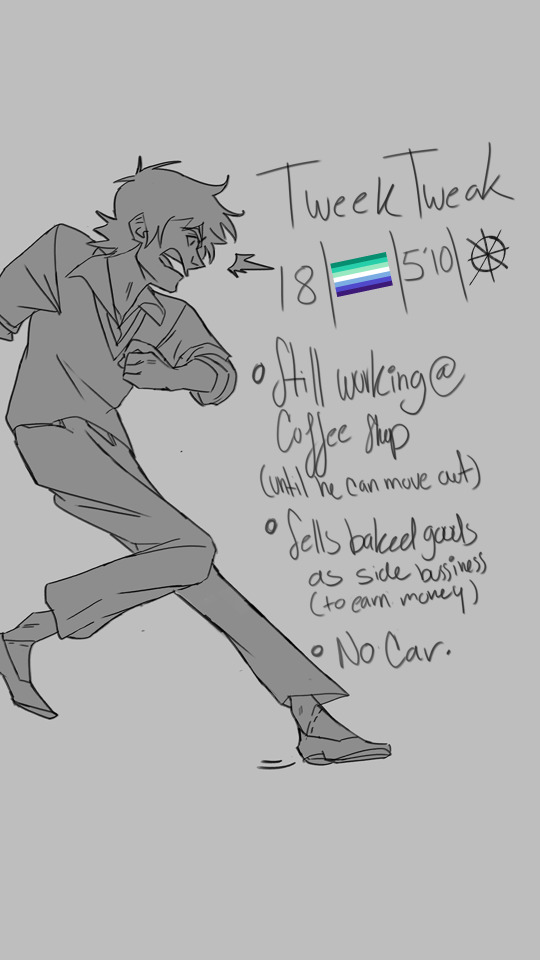
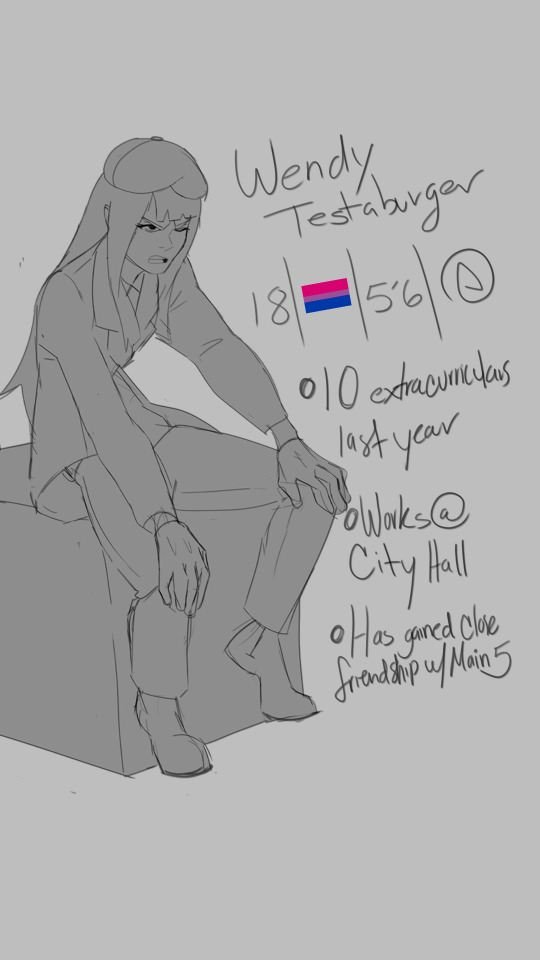
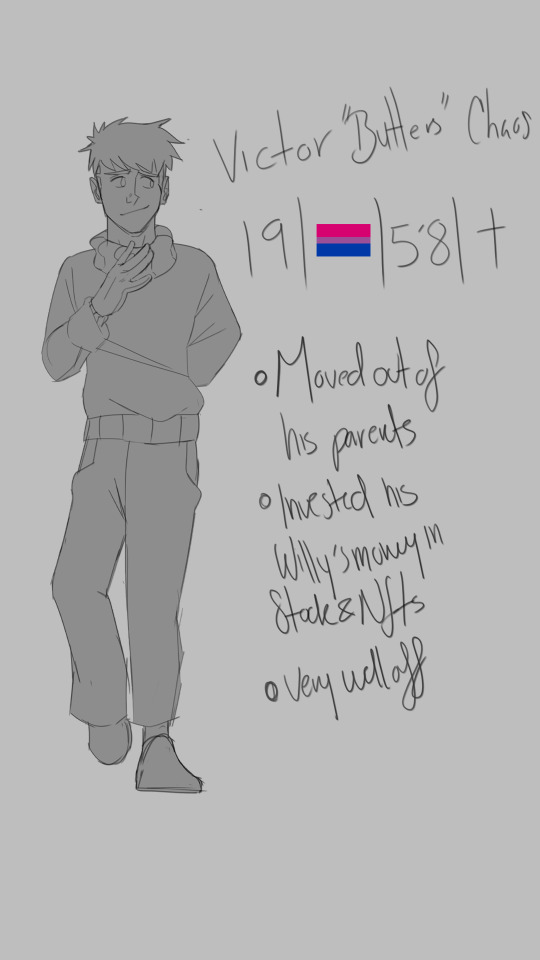
#south park#kyle brovlofski#stan marsh#kenny mccormick#eric cartman#wendy testaburger#butters stotch#craig tucker#tweek tweak#south park style#south park creek#south park fanart#south park kyle#sp tweek#sp craig#sp kyle#sp fanart#south park au#south park death reset au#the kenny paradox#thats what i'm calling it
148 notes
·
View notes
Text

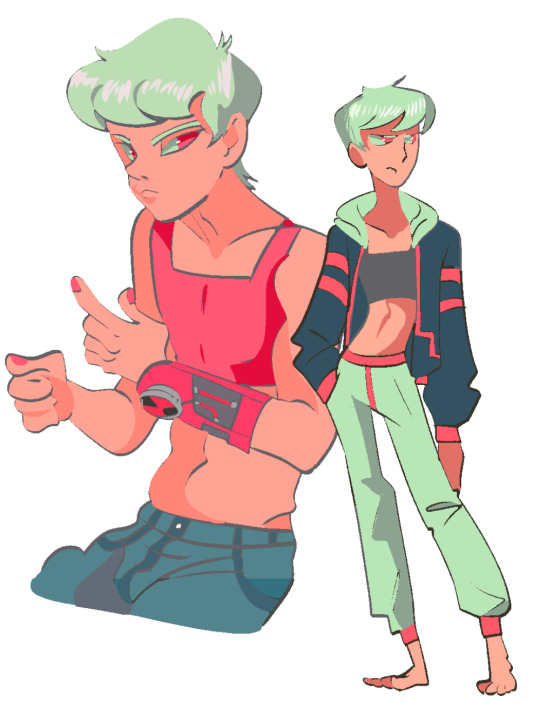
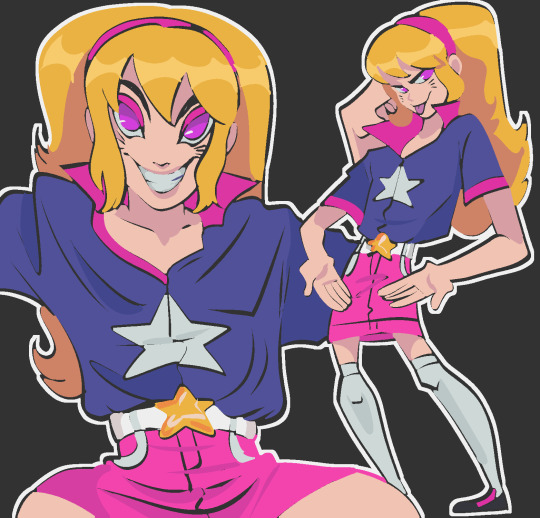
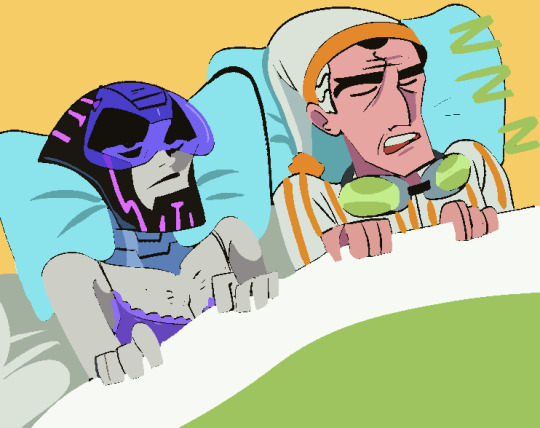
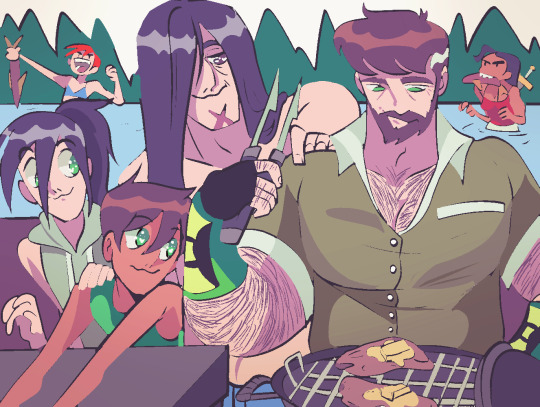


breaks gonna be over soon sadface so ill be posting less
#ben 10#ben 10 omniverse#ben tennyson#ben 10 alien force#kevin levin#ben 10 ultimate alien#gwen tennyson#ben 10 classic#lucy mann#ben 10 series#ben ten#b10#ben 10 albedo#ben 10 charmcaster#professor paradox#ben 10 professor paradox#ben 10 eon#kenny tennyson#devlin levin#kai green#kai greene
458 notes
·
View notes
Text
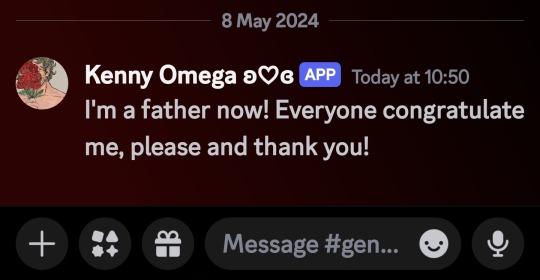
Kenny is very happy about the kittens. He loves animals
4 notes
·
View notes
Text
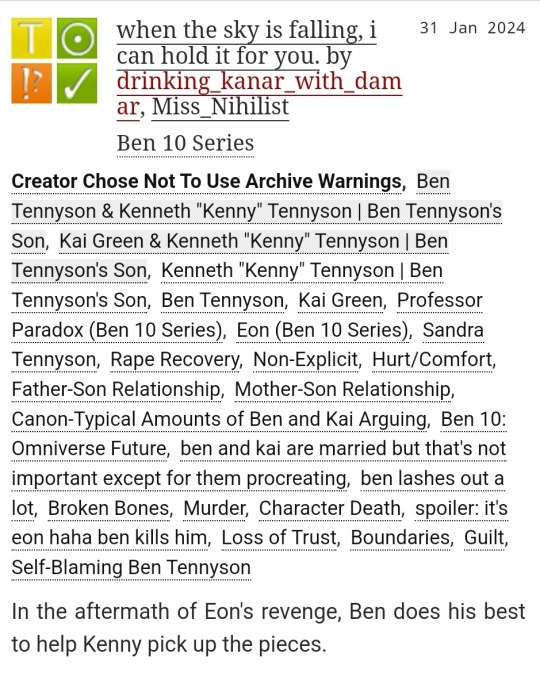
Collaborated with a friend on a new fic :3
Preview:
Kenny opened his eyes and stared up at the vast nothingness that surrounded Eon's hide away. It looked exactly the same as it had the entire time he'd been here. He had lost track of how long he'd been held hostage in Earth time. Days? Weeks? Months? Not that it mattered...
Did anyone even know that he was missing? His dad or Paradox shouldn't be taking this long. Kenny rolled over onto his side and hugged himself tightly. He squeezed his eyes shut, trying desperately to keep himself from crying. However long this had been going on already, he prayed that it was over soon.
He didn't think he could take it if Eon raped him again.
"I see you're awake," Eon's sneering voice called.
Kenny tensed. It was too late for him to pretend to still be sleeping, but even as he wanted to beg Eon for mercy and promise anything to make him stop, Kenny knew he had to stay strong. That was what a hero would do.
That was what Dad would do.
Slowly, Kenny uncurled and sat up. He mustered up his best glare and willed his voice not to tremble. "You've made your point, Eon. Why are you still keeping me here?"
Eon stalked closer to him. Kenny flinched back, only for Eon to grab him by the face with his withered hand. "And cut our fun short?" He cooed mockingly. Kenny shuddered in terror and disgust. "I'm waiting for daddy dearest to come rescue you. I was sure he would've been here by new. A pity... Perhaps he doesn't care about you as much as you thought."
"Shut up! You don't know him at all!" Kenny snapped.
Dad would come. He had do.
5 notes
·
View notes
Text
But in reality, wouldn’t Regal turning on Mox to help MJF win the title be redundant? Like wouldn’t that be the complete opposite of having Max “earn it”? (Both the title and His Lordship’s respect).
Like even if Mox drops the title to MJF at Full Gear why would Regal turn on Mox? Like, every other member of the BCC has lost a title or title shot(s) and nothing ever points abandonment or being “kicked out” because of it.
If something that big were to happen it shouldn’t come out of nowhere — and I feel like Regal turning like would be a waste of the BCC of a group AND so many potential storylines down the line (i.e. The Elite -I’m including Hangman in this too - vs BCC)
Like I get the idea of His Lordship managing Max in some capacity but MJF doesn’t need him. He doesn’t need a mouth piece or manager - he’s fine alone.
I feel like they’re mirroring Mox and Regal from FCW to some extent and the idea of Regal cheating for MJF doesn’t make sense to me.
#just a ramble#paradox does wrestling#paradox rambles#aew#all elite wrestling#aew dynamite#aew rampage#aew full gear#blackpool combat club#bcc#jon moxley#william regal#bryan danielson#wheeler yuta#claudio castagnoli#mjf#maxwell jacob friedman#kenny omega#nick jackson#matt jackson#the young bucks#hangman#hangman adam page#the elite#tk i’m very fragile emotionally right now play your fucking cards right or i fucking swear#tk i’m not responsible for the monster i become of the bcc breaks up#forgive the typos — I’m emotional
35 notes
·
View notes
Text
Well here’s my super niche ass Spotify wrapped for this year... If we like similar things.... hi!!! Any Kenny songs for me? Or Kyle ones cuz I have very little lol.

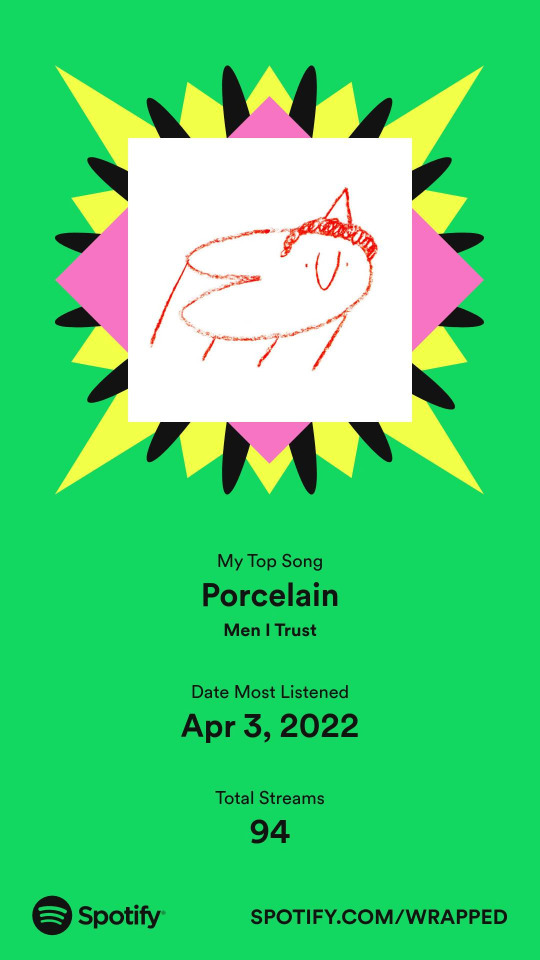
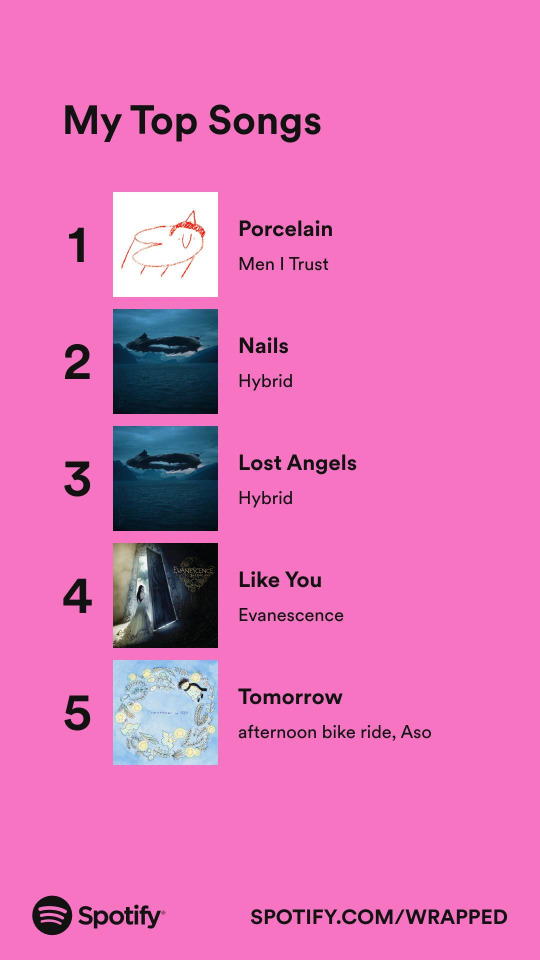
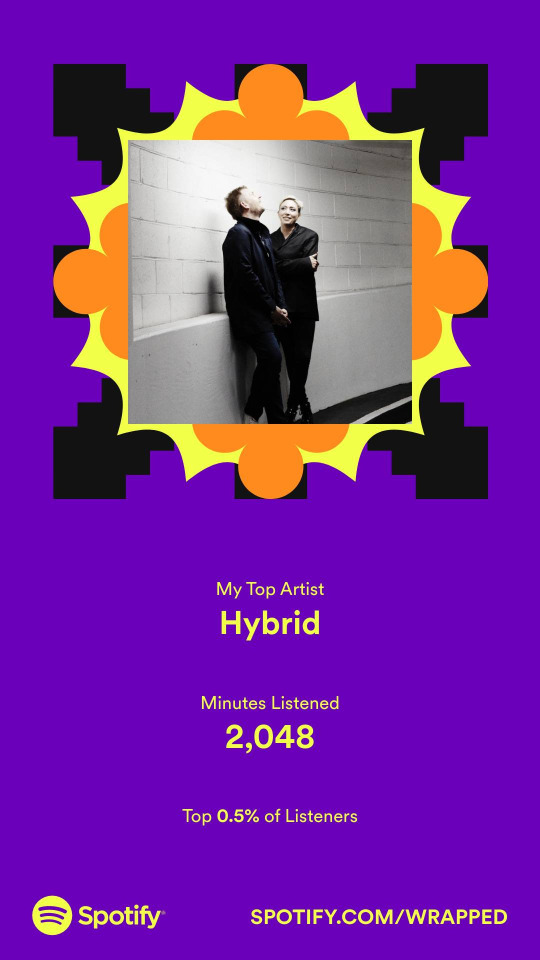
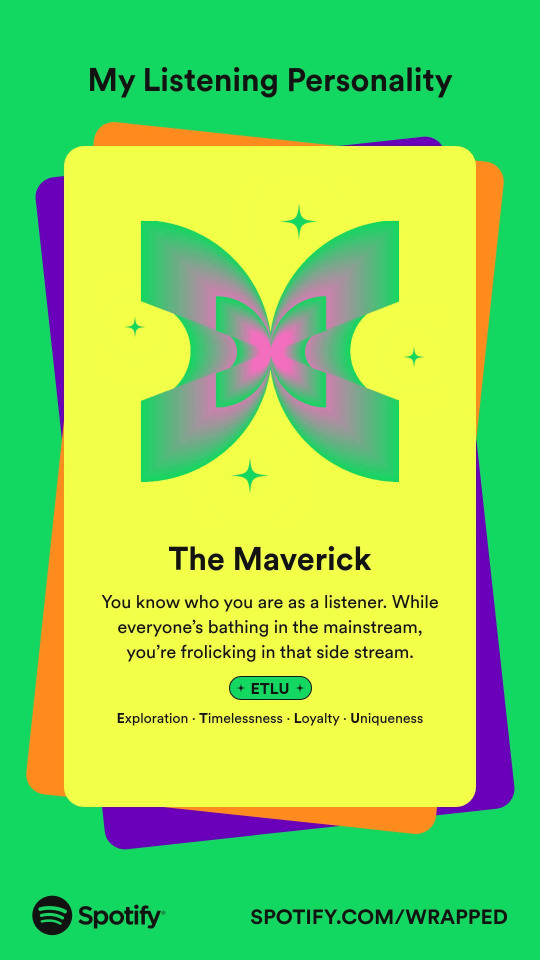
#rimble ramble#forreal i have like 5 kyle songs or smth#but a whole separate list for Kenny lmao#anyways...i am a paradox but I do like lots of different stuff!!#I listen to Like You on repeat daily tho#..im a melancholy ass bitch#anyways I like seeing everyone's ;v;#spotify wrapped
4 notes
·
View notes
Text
Levi's mind
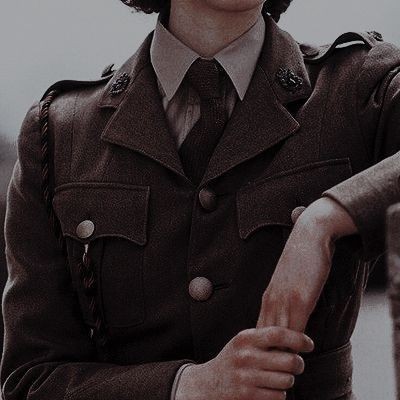

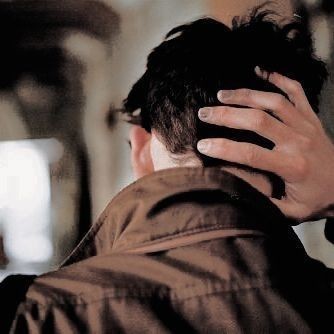
Levi desperately needed sleep.
He was so tired, so exhausted that his body moved by the inertia of surviving, fainting seemed imminent, yet it never came, his spirit refused to give in, he assumed. As a soldier, if he could avoid being squashed by a titan or getting a bullet between his eyebrows by an enemy soldier, he didn't have probably not much more than a year, alive by the will to live… well it was uncertain.
Levi felt deep down that if he continued at the pace he was taking he was going to die. the cause? It wasn't his problem, he would be dead before he realized that the last strength of his body was fading, the consequences? it was a totally different story. He hated to be aware of it, but he knew the responsibility he carried on his shoulders, he knew that at a certain point he was essential, he was one of the sharpest knives in Paradis, . If he died so suddenly, everyone would be just as bewildered as he had been many years before when Kenny left him to fend for himself. He didn't like to think about it.
Besides, you were never going to forgive him and that was more than a big problem for his moral conscience.
Two years had passed since, due to your health, you left the army without looking back, trying to bury next to the bodies of your comrades all the memories that you had left of the survey corp. You made a decision that privately Levi envied because stopping cutting was not a luxury that he could afford being the knife of the nation, A decision for which Levi resented you as much as he understood you. You never talked about why you did it, although both he and Hange suspected that Erwin's death had affected you a little more than you openly expressed. You couldn't look Armin in the eye even years later, that was enough evidence they needed to confirm it.
Levi understood it more than anyone, because with each passing day the remorse he had for himself increased every time he thought he had made a mistake in choosing the idealistic young man over the experienced commander, his friend, your fiancé.
till the present day he still cannot close his eyes and not see you completely defeated, begging him to please save the man who was so close to fulfilling his dream. Little did you know of the last conversation that the most important men in your life had, little did you know that Levi had killed Erwin before the man stopped breathing, it wasn't as if he was going to confess it anyways, paradoxically he couldn't find the strength to face you.
Life had been so unfair, so cruel and merciless. From time to time Levi thinks about what would have happened if both of you had settled for the city underground, if you had not been ambitious to see the starry sky, little did he know that the price of a such clear sky was the blood of your friends,
Maybe Levi should have insisted on staying down there. That way now he wouldn't have to suffer for not being able to get the guilt off his chest, if he had insisted maybe now you'd be happily married, running the illegal business or being a bounty hunters. Perhaps, if only he had insisted a little more, Farlan and Isabel would still be alive.
maybe he could sleep.
Maybe he would have the one he needs most by his side.
.
.
.
.
.
I have the feeling that I am wrong in some tenses. anyways I hope you liked it :D
#attack on titan#erwin smith#snk erwin#snk levi#eren jaeger#shingeki no kyojin#levi#levi ackerman x reader#shingeki no kyoujin levi#levi ackerman#levi ackerman headcanons#levi x reader#levi x you#levi x y/n#levi aot#levi scenarios#levi snk#levi shingeki no kyojin
67 notes
·
View notes
Text
So in the Rooters arc Argit goes on the run with Kevin pretty much immediately, despite there not seeming to be much if any reason to think he would be targeted by the Rooters. He joins a fight he didn't need to against Swift. His response to Kevin presenting a Null Void portal is "Not even for you." He's the first and really only one to speak up in Kevin's defense and say they should have faith in him when he seems to have turned traitor.
His flashback in that arc shows him not taking full advantage of getting a chance to run for freedom but instead hanging around keeping an eye on things, presumably keeping an eye on Kevin. When Kevin snaps his reaction is to try to calm him down to save the lives of everyone else there, including the other Amalgams who only minutes before were ready and willing to recapture him.
In UA, when the Forever Knights are running around murdering and threatening people, despite having the ability to skip town he instead goes and alerts Team Tennyson, has his ears to the pavement enough to know with certainty it's not just a him thing. Lets them drag him around with their investigation until he knows a fight is coming. (And he can claim it's because he has business on Earth all he wants, we see him off the planet more often than we see him on it. Seriously in UAF only three of his seven appearances are on Earth, his eggs are not in one fucking basket.)
He tuts at Rook for wanting Ben to be different, because that's not how you treat your partner.
He tries to warn Ben of just what it is he's doing in Many Happy Returns.
When Paradox is taking fuckers around to gather Good Guy Omnitrix wielders one of the people he brings them to is an Argit.
Kenny calls him 'Uncle Argit' in the flashforward and he's the only person the child hugs.
He's an asshole, and I wouldn't trust him without three background checks, two endorsements from trusted individuals, and proof of insurance, but, potential may be stored in the space rat.
13 notes
·
View notes
Text
Thoughts on Attack on Titan
Me being 10 years late to things, I was recently convinced to watch Attack on Titan and I ended up binge-watching the entire anime (and reading the final manga chapters) these last two weeks. I had purposefully been dragging my feet about watching this show since I had heard so much controversy surrounding it; that it was sexist, pro-fascist, pro-nazi, pro-imperialist, pro-propaganda, and heavily anti-Semitic. All pretty good reasons to stay away from something, I think.
But then I saw a video about how the criticisms leveraged against it were not quite so black-and-white, and how the show was more complex than those labels gave it credit for. Admittedly, that piqued my interest. I want to come to my own conclusions about the media I consume, so I decided to watch it with an open mind and a discerning eye.
And boy did I discern... a lot.
I am recording my very very lengthy opinions about Attack on Titan and its manga ending under the cut, mostly so that if anyone asks how I feel about certain things portrayed in the show, I can reference them to this post. Here's a quick table of contents:
The Themes
The Good
The Bad
The Problems
The Characters
Conclusion (and why Jean is the best character you can't change my mind)
Anime and Manga spoilers ahead.
The Themes
Attack on Titan tackles a lot of different themes throughout the course of the story. Possibly too many. Right now, I'm listing the big ones I noticed here because I will be referencing back to them later. Also note I am stating these themes as they are presented in the text, not as my own personal beliefs.
The human desire to create meaning in life and death. Does dying for a cause give life meaning? If the cause is hopeless, would dying for that cause be in vain? Is it enough to know that the living will continue your legacy after death? Does honoring the dead give their life meaning? Is the gift of life itself meaningless if not used to ensure humanity's ongoing survival? Is it enough to simply exist? Characters that most embody this theme: Zeke, Eren, Armin, Jean, Levi, Hange, Erwin, Historia, Ymir (of the Cadets), Marlow.
Everyone is shackled to a dream. Does the desire to fulfill a dream make you a slave to it? Will devoting your life to a dream of freedom make you paradoxically a slave to the very ideal? Will the hope of achieving a dream drive people to do terrible things they never would have otherwise? Is true freedom in the ability to let go of a long-held dream? Characters that most embody this theme: Erwin, Eren, Levi, Kenny, Armin, Jean.
The corrupting power of love and loyalty. Similar to an enslaving dream, will blind devotion to someone (in a romantic, platonic, subordinate, or familial relationship) drive that person to do terrible things just to be with them or make them happy? How far can that love go? Is blind devotion even love? Is it wise to love if it creates fatal weakness? Characters that most embody this theme: Mikasa, Armin, Eren, Zeke, Annie, Reiner, Falco, Historia, Ymir (of the Cadets), Ymir (The Founder).
The cycle of violence is endless. As long as more than one person is alive on Earth, there will always be conflict. Is it worth fighting to break the cycle when the cycle is inevitable? Is it necessary to perpetuate the cycle in order to survive in a world that forces violence? Is humanity worthy of saving if saving it demands the loss of one's own humanity? Characters that most embody this theme: Erwin, Eren, Armin, Reiner, Jean, Floch, Hange, Levi.
The pursuit of truth and wonder are the driving forces behind humanity's ability to work together. Propaganda and the obstruction of truth might work to pacify the populace short-term but will always be defeated once people put in the effort to truly understand others and the world they live in. The promise of discovery and truth are invaluable sources of hope and ingenuity. Characters that most embody this theme: Hange, Armin, Erwin.
People are people. Everyone is capable of great evil or great kindness, regardless of what nation, class, or race they were born into. Everyone has strengths and everyone has weaknesses. Everyone is influenced by their own hopes and dreams. The recognition of these innate similarities is crucial for forgiveness and acceptance across boundaries. Characters that most embody this theme: Reiner, Jean, Eren, Armin, Sasha, Gabi, Falco.
There is no accurate measure of good and evil. Being a "good person" is subjective, based more on personal goals and cultural ideals than on a base standard for "good." When faced with a difficult decision, perhaps it is best to choose whatever option will cause the least regret, a measure that is unique to everyone depending on an individual's values and on unknown outcomes. Live a life you can be proud of. Characters that most embody this theme: Armin, Annie, Levi, Jean, Eren, Reiner, Gabi, Ymir (of the Cadets), Historia
As you might have noticed, I chose to summarize many of these themes in a list of questions, and for good reason: oftentimes, the theme is raising a question but is almost never interested in giving it a straightforward answer. Instead, AOT will often raise a question, and over the course of the story, you get to come to your own conclusions depending on how the characters act. For example, I listed Jean as a character that embodies "meaning in life and death." Does Jean give Marco's death meaning by honoring his memory and values each time he's faced with a moral dilemma? That's up for the audience (and Jean) to decide.
Compared to other shonen that tackles similar themes and questions, this freedom of interpretation was novel for me, and for the most part, I loved it. Fullmetal Alchemist is the only other shonen I can think of that I've seen that touches on similar subject matter, but the tone of FMA is not nearly as dark, bleak, or ambiguous. While I also love FMA, the world of AOT is much more harrowing to navigate, and I found it exhilarating to have my preconceptions of its world challenged at every turn. Such a thematic approach felt grounded since real life is also not so easy to navigate. Unfortunately, this also has a glaring downside, which I will discuss in my "The Problems" section.
The Good
The first 3 seasons and almost everything that entails. To be quite honest I have very little to criticize about this show before the basement reveal. The pacing is almost perfect and I was always on the edge of my seat wanting to know more. The mysteries are intriguing and, upon slowly getting more and more answers, the narrative either only raised more tantalizing questions or completely recontextualized previous scenes, constantly giving the show new breath. The action is exciting, the stakes are heart-poundingly high, the losses are devastating, and the gore is graphic and stomach-churning but I think it necessary to absorb the horrifying and hopeless nature of the setting, which serves to heighten the few victories the characters actually do get to experience. There also isn't much of The Problems yet in these seasons.
The music. The soundtrack is undoubtedly one of the best aspects of this show and is quality throughout.
Animation. While I prefer the fluid and expressive animation of the first three seasons compared to MAPPA's comparatively stiffer animation of the final season, MAPPA still gave plenty of jaw-dropping sequences for the most impactful moments.
A tragic, queer, CANON romance. The fact that Ymir is canonically lesbian is amazing to me if only because I haven't watched a shonen yet where one of the main cast is actually lesbian, let alone has a significant portion of screen time devoted to establishing her unambiguous feelings for another woman who also reciprocates her feelings. AND THEN their romance ends tragically in-universe not because it's gay but because of narrative circumstances that were simply beyond their control or understanding. "My only regret is not marrying you." How romantic is that?
Female character design. Specifically all the big noses. As a big-nose-haver it makes me happy to see women have big noses and still being seen as pretty. That, paired with the fact that women are hardly ever sexualized and are often portrayed just as strong if not stronger than the men was nice to see after being exposed to so many infantilizing and sexualizing shonen tropes. That said, there could have been more diversity in body shape and skin tone.
The setting (of Paradis). I am going to stress here that I strictly like the world-building of Paradis, which is the main setting of the first three seasons. Marley and the rest of the world after Season 3? I'll get into that later.
Erwin vs. Armin. I consider Levi's decision to save Armin over Erwin to be the true thematic climax of this story, and I thought it was exceptionally well done. I've seen endless arguments about whether or not saving Armin was the right choice, so I'll throw in my two cents: if you think Levi should have saved Erwin, you are Missing The Point. In this moment, Levi, a character who fights for the greater good but is not quite as pragmatic as Erwin and who has a deep hope for humanity's future but is not quite as idealistic as Armin must make an emotional choice here, not a tactical one. Maybe saving Erwin might have been better for the Scouts, but the truth is Erwin was selfish, and Levi had already come to terms with this when he told his old commander to "give up on your dream and charge to your death." Armin, on the other hand, had a pure and selfless dream about the world outside the walls, and that is what Levi decided to value for humanity's future. That is the symbolic meaning of that decision, not whether or not Erwin would have been a tactically better commander.
It is enough to simply exist. Manga spoilers for the final chapters ahead. I said this was a question raised by one of the main themes of the story, "Is it enough to simply exist?", and I was pleasantly surprised that the ending gave it an answer through the conversation Armin has with Zeke. After so much deliberation about genocide, sterilization, war, the inherent and unbreakable cycle of violence, and so many other depressing themes surrounding the depraved nature of humanity, having the main takeaway for the series be "we were put on this Earth simply to enjoy it and to enjoy each other" was a cathartic release. I know I'm probably going to cry when that bit is animated.
The Bad
The frustrating thing that is Eren Yeager. I suppose this is biased but I really do not gel with Eren. Even in his Season 1-3 era I did not like him and his one-track angry boy mind, only ever finding him tolerable during the Uprising arc when he got a healthy dose of humility which he immediately ruined with his pitiful self-flagellation in the midst of a dire titan battle but I digress. This characterization does make a whole lot more sense though when he enters Season 4, when all of his personality traits are only slightly twisted in order to make him the villain, ala Walter White. Didn't make him any less frustrating.
The frustrating thing that is Mikasa Ackerman. She started out great. Then Eren turned into a titan for the first time and things quickly went downhill. After that, it seems like her character was retroactively changed from being the stoic and protective older sister to being the blindingly devoted and fussy love interest. I might have been okay with it if she had ANY other defining character traits, or hell, even any relationships outside of Eren and Armin. Manga spoilers, but she doesn't even have a strong relationship with Jean, who she apparently marries in the epilogue. Between Eren and Mikasa being two of the three main characters, I unfortunately felt very little towards them which was a not-so-small problem in my enjoyment of the series.
The humor is... fine. I get it, a show as dark as Attack on Titan probably shouldn't try to be funny, nor would I expect it to be. Still, the few attempts at humor it did have fell flat for me, especially when a lot of it leaned on Sasha's potato and meat gags (and a really uncomfortable torture gag after the Uprising Arc? Hey, what was that about? That was kinda fucked up, right?) Now that I think about it, the hardest I ever laughed while watching this show was when Reiner nonchalantly tells Eren that he and Bertolt are the Armor and Colossal Titans simply because I wasn't expecting the biggest bombshell reveal of the story thus far to be so casually dropped like that.
The Titan mechanics got so fucking convoluted. Don't get me wrong I love a good mystery and I don't necessarily mind the supernatural time-warping twists that the Titan storyline took up to a point. It's just that the story kept adding so many conditions to Titan powers and lore that it was getting hard to keep track of it all. Okay, so the Colossal Titan will create an unavoidable nuke during transformation even though it clearly didn't do that at the raid on Trost, sure. Okay, so Reiner can survive a fatal injury to his person as long as he manages to transfer his consciousness to the Titan body first, sure. Okay, so Eren can't awaken the Founding Titan's ability unless he's in contact with someone of royal blood, sure. Okay, so the Founding Titan's abilities can alter the biology of all Eldians, and also control all Titans, and also deactivate all Titan hardening, and also impose the will of the king onto all its future royal successors, but it's somehow NOT the Titan with the power to see the future? Sure? Okay, so Falco inherited the Jaw Titan, but because he was originally turned with Zeke's spinal fluid, he ALSO inherited aspects of the Beast Titan even though Zeke is still the Beast Titan and it's never been established that the spinal fluid used for the original Titan transformation affected the inheritance of Titan shifter abilities? Why not, at this point.
Uprising Arc and its overly simplistic military coup. I didn't dislike the arc as a whole, but it was a very lengthy detour from the main objectives the series was already on track for and added to the repetition of Eren getting kidnapped. Additionally, I thought the coup to overthrow the old government was too... easy? It was really only made up of two setups: one to expose the corruption of some random military police guy to the press and turn public opinion in favor of the Scouts, and one to expose the government's selfishness to the military commanders enough to convince them to depose their current leaders and pardon the Scouts. Then the Scouts essentially say "Hey Historia here just killed a Titan and has royal blood (trust us) so she's going to be the queen now. Please ignore the fact she is also a Scout and therefore could easily be a puppet queen for the military branch that was until very recently public enemy number one" and everyone just kinda accepts this. I don't know, it didn't do much to sell me on realism in a world that had done so up until that point.
Wow, the stakes are getting pretty high, I wonder if... WAIT, 80%?! That was kind of my reaction to the whole manga finale. I don't mind high stakes, but when we're talking about the horrific genocide of 80% of humanity at the hands of our main character, uh, that scale is a little hard to grasp. This also feeds into The Problems, which I'll get into later, but all in all, I think after a certain point the story just got too big for me to stay believably invested in what was actually happening.
Endgame plot thread irrelevance (especially for the female characters). Why did Historia get a whole story arc just to be sidelined and pregnant for the whole rest of the story? What happened to Yelena? What happened to Mikasa's relationship with the Azumabito clan? What's the deal with Ymir? So many things were rushed at the end that it was disappointing to see so much setup for very little payoff. Unfortunately, the female characters seemed to get the brunt of this.
The Problems
Okay, so this section is basically why I made this post to begin with. I want to address all of the criticisms I've seen for Attack on Titan and give my honest opinion on them because, yes, I do think it's more complex than I've seen people give it credit for, but neither is it free of harmful interpretations either.
On the topic of being Pro-Imperialist, Pro-Nazi, Pro-Facsist, and Pro-Propaganda: Attack on Titan is positioned against all these things. Just because a media depicts something doesn't mean it's condoning or endorsing it. Imperialism, fascism, and propaganda are all present in the story but are very often forces that the main characters must fight against. It might not go as far as to say "military bad" but it definitely says "war bad, genocide bad, euthanasia bad, blind devotion to one's country bad" and a whole host of other issues that it does not depict in a favorable light. Now, the viewpoints of the mangaka might be in question, and I can't say much about the way he supposedly views Imperialist Japan. I'm just saying, in the context of the show, I don't see an unquestioning approval of imperialism being portrayed here.
On the topic of Sexism: eh, maybe. It feels weird to be so nonchalant about that but to be honest, it's not prevalent enough to stand out compared to other shonen. Female characters might not always see fully fleshed-out arcs, but neither are they handled in a way I would deem sexist other than the very strange exception of Mikasa's one-sided obsession with Eren somehow mirroring the "love" a child bride sex slave had for her abuser 2000 years ago. That said, strong characters like Annie, Ymir (of the Cadets), and Gabi manage to have fairly compelling motivations and growth while also being love interests. There's really no fan service to speak of, and some of them even get to be gay. So, you know, I'll take it.
On the topic of Anti-Semitism (Disclaimer: I am not Jewish): yeahhhhhhh... so, up until the end of Season 3, I was confused about this claim. I mean, there were Titans, mindless man-eating monsters that could resemble the blood libel spread about Jewish people, but I thought it was a bit of a stretch. Besides, while the walled city is evidently based on 19th-century Germany, there isn't really a divide between the people who live there and the people who can turn into Titans; given the right conditions, any human character in the show could potentially turn into a Titan, so I didn't see the problem. If anything, I thought it was just a modified take on the zombie apocalypse genre.
Then the basement reveal happened, where it's revealed the walled city we had been following the last 3 seasons wasn't actually the last bastion of humanity as both the audience and the cast once believed; it is actually an island where distinct people called Eldians fled to escape the persecution they faced for their unique ability to turn into Titans. Turns out the rest of the world is populated by many diverse cultures who all hate the Eldians for their ancient Titan-enabled crimes against humanity. The Eldians who aren't trapped on the island of Paradis live in the gated ghettos of the Nazi-Germany-coded nation of Marley and are forced to wear star-embroidered armbands to denote their subhuman status.
Okay. Yikes, I thought. But I still gave it a chance, because as I mentioned before, just because something is depicted in media doesn't mean it's being supported or condoned. I was hoping that, at some point, the claim that Eldians committed atrocities with the Titans or the claim that only Eldians can turn into Titans would be proven wrong. Neither of these hopes came to fruition. It's revealed that Eldians did a lot of good with their Titan powers, true, but they also waged endless warfare in the name of a King that enslaved them. So, while they weren't really to blame, they certainly did commit the crimes that earned the world's ire.
This is a problem. If the imagery of the armbands and the WW2 ghettos were never involved, perhaps I could give the story the benefit of the doubt and see the Eldians as a fictional race created for the purpose of illustrating the cycle of violence and the need to relate to each other as humans first. But the problem is, they are very explicitly compared to Jewish people, thus insinuating, whether intentionally or not, that Jewish people do have these monstrous qualities and did commit crimes that earned them the oppression they continue to face when in reality, they did nothing to deserve it.
As an additional "yikes," there's also the questionable existence of the Tyber family, the only Eldian family in Marley allowed to have wealth and political influence. It's revealed that the Tybers have essentially been pulling Marley's strings the whole time, which... wow, really doesn't do much for anti-Semitic conspiracy theories that Jewish people are actually in control of everything, huh. Thankfully, the Tyber storyline is short-lived, but then there's the Yeagerists, a fascist Eldian party that wants to counter-genocide the entire world before it can genocide Eldians. Triple yikes. Let's throw in Zeke's plan for forced sterilization against his own people for a solid quadruple yikes.
However, there are also important distinctions to make between Eldians and Jewish people that are in the story's favor. While the Eldian people of Marley are mistreated and considered subhuman, Marley still puts in the effort to brainwash them into thinking they are the "good" Eldians in order to earn their unconditional loyalty and turn them into frontline soldiers in their war to conquer other nations and the island of Paradis, something that doesn't really mirror Nazi Germany and gives us a reason to sympathize with the Eldians who were once the "bad guys" of Season 1-3. There's also the fact that 95% of the show's main cast IS Eldian, and up until the basement reveal we've only known them as human. Everything until that point has essentially served to make us identify with Eldians more than anyone else. While the rest of the world may dehumanize them, we the audience react negatively to any mention of them being less than human because we've only ever seen them fight to survive in a world where they thought they were humanity's last hope. We want to see them make it out of this alive.
And here's where my internal conflict with the show lies; it would be so much better if it cut out the WW2 imagery. Sure, there would still be plenty of subtext that could lead people to compare Eldians to Jewish people, but it wouldn't be so distractingly obvious and spur additional real-world comparisons where there aren't any. The sudden jump to 20th-century Germany is also somewhat jarring and I wouldn't have minded if Marley was based more on just another nation of the same era rather than a 100-year jump forward of the same setting (though it does make in-universe sense, what with Paradis being 100 years behind technologically but I digress). Basically, I think a LOT of the story's problems with probably-unintentional-but-still-present anti-semitism could have been avoided if the war and race allegories weren't given the same tact and grace as a David Cage game.
But now that brings me to what I think is Attack on Titan's fatal flaw: thematic ambiguity. "But Anna," you may say, "you said the freedom of interpretation is what you loved about its themes." You're right, I did say that. I still do. But ambiguity is a double-edged sword: it gives the audience freedom to derive unique meaning from the text and connect with it in deep, personal ways, but on the other hand, if a theme is too ambiguous, the author runs the risk of either telling a meaningless story or telling a story that conveys an unintended meaning. I think an author must have SOME intention with a theme if it is to be included, and must provide some sort of guide (usually with a character or two) to point the audience in the right direction. I'll give an example of what I mean for both instances in Attack on Titan.
For an example of a well-executed ambiguous theme, I'll turn to the question "Is humanity worthy of saving if saving it demands the loss of one's own humanity?" that I listed under the "cycle of violence" umbrella. Specifically, this question is raised after the Battle of Stonhess, where Erwin allows a Titan battle to rage in the middle of a populated area for the slim chance he could capture Annie alive and extract information from her. This decision cost hundreds of innocent lives, and worse of all, Annie was of little use to him. Erwin stands behind his decision for the greater good and Armin rationalizes the battle as a net gain, but Jean presents Armin with a counterargument: "If it's that easy to let the fight turn us all into monsters, maybe we don't deserve to win." Still, we aren't given an outright answer to who's right and who's wrong here. Instead, the guide we are given is in the way ideologically-opposed characters like Erwin and Jean are treated by the story: Jean maintains his humanity, minimizes civilian casualties whenever possible, and in the end, is left with few regrets. Erwin, on the other hand, feels the weight of all the lives he callously sacrificed in the name of a "greater good," which we learn was perhaps more selfish than he let on. Upon resigning himself to death, he laments all the innocents who died at his command. It is through these characters that we learn who, ultimately, was in the right, and what that theme is trying to tell us (also coincidentally applying to the theme "live a life you can be proud of.")
For an example of a poorly-executed ambiguous theme, I'll turn to the question "Is it necessary to perpetuate the cycle of violence in order to survive in a world that forces violence?" that I also listed under the "cycle of violence" umbrella. This question is perhaps no more apparent than when the main characters are faced with the terrific power of the Rumbling, basically a Titan-powered WMD Eren uses to preemptively wipe out humanity before it can inevitably attack Paradis. While many characters deliberate the ethics of this, there are two characters who have starkly different viewpoints: we have Floch, a Yeagerist who is in full-hearted support of the attack and is uninterested in saving human lives if they are not Paradis Eldians, and we have Hange, who despite being a Paradis Eldian beats an impassioned fist against a table and delivers the rather on-the-nose line "Genocide is wrong!"
So who's right? Well, anyone with any sort of media literary sense will say "Hange, obviously." Because Hange is portrayed as a good person (usually) and Floch is portrayed as a villain (usually). The problem is both these characters fight valiantly in the name of their cause and incidentally die in the same scene while imparting their wishes to the heroes for how they want the world to be. Anyone watching who harbors even a fraction of Floch's nationalism might see that and say, "Floch was in the right. He righteously died for his country and he almost won against an impossible enemy." There's also the problem that Hange does not give an alternative answer to the Rumbling and even admits they don't have one, they just know the Rumbling is wrong, which doesn't do anything to add to the theme in question. Unfortunately, the Rumbling is presented as the only reliable line of self-defense for Paradis, as it's already established that diplomacy has almost no chance of working and that the only other plan is, of all things, sterilizing the Eldian people to appease the world that wants them dead with as little bloodshed as possible. What would have been the only other recourse, the order of a partial Rumbling to wipe out the world's military bases, is immediately taken off the table when it's revealed Eren never had any intention of doing that. Therefore, the story doesn't give us any answer to this question at all, since the characters never get to find an alternate solution for themselves and are forced to simply stop the Rumbling before it can kill too many people despite the risk of dying in the process or play along with Eren's predetermined plan. For a story so bent on saying "genocide is wrong" it does a weirdly good job of presenting it as a survival tactic.
Now, I wouldn't normally have that much of a problem if a story fumbled a theme or two. Not everything has to land perfectly. That said, Attack on Titan NEEDED to deliver these themes clearer than it did, because of one major reason: it was dealing with questions involving fascism, genocide, war, and eugenics. You should not casually raise these issues as a backdrop to a theme that can't be delivered on, because then you run the risk of attracting people who very much are pro-fascist, pro-genocide, pro-war, and pro-eugenics and will blatantly misinterpret everything in the text in order to warp it and fit their worldview (a risk I think FMA managed to avoid by being very blunt with where it stood on those same issues). On the flip side, you'll also repel people who otherwise might have loved the story because at some point they heard someone say "Oh yeah Attack on Titan is awesome, the Yeagerists are cool and I agree with the main character's plan for genocide," and rightfully be put off from that. Then they'll turn around and tell the next person, "Hey, don't watch that, I heard it's pro-fascist and pro-genocide," and that person will go "Oh thanks I didn't know that, I'll stay away from it," and that person will be me for the last ten years.
The Characters
Eren and Mikasa: I'm lumping these two together because I already talked about them at length, but I will say, for being the two main characters on which the finale hinged, I think they were both too simplistic to fully deliver on any of the complex themes they represented. Hell, when listing all the themes each character embodied, I only listed Mikasa under one of them, which is not great for a deuteragonist. Not only that, but Mikasa didn't even really deliver on her one theme: she broke the Titan curse by "letting go of her enslaving love for Eren," but did she really? She kissed and then absconded with his decapitated head to give him a proper burial, then returned each year to his grave with Jean and her family (who remained faceless) to leave a flower behind for him. I get it, he was important to her as a childhood friend and that alone means she should try to remember him despite the monster he turned into, but the framing of this suggests she never really let go of him and was shackled to his memory even as she tried to move on.
Armin: The thing about Armin is that while I ultimately think he's the heart of the story and the main driving force for good (as evidenced by the fact he's the only character I listed under ALL the themes I mentioned earlier), he also reads more like a symbol than a character. That's fine, a character doesn't need to go through an arc to be good, but for me, personally, a character in this kind of setting needs some form of growth for me to form an attachment to them. I'm not just talking about how Armin steadily grows okay with murder because that still doesn't do much to change his rosy outlook on life. The most excited I ever got about Armin's development was when he manipulated Bertholdt into thinking Annie was being tortured because holy shit that's kinda dark for Armin and I thought maybe his strategic mindset was going to start getting the better of his morals, but then that's never really touched on again. It's because I was never quite sure what the rhyme or reason was behind his actions that I found myself disconnected from him as a character, despite being inspired by him as a symbol.
Jean: My favorite character and a sorely underrated one at that. Won't say anything more about him here because I'm dedicating it to the Conclusion.
Levi: Second favorite character. Back when Attack on Titan's popularity was at its peak, I would see Levi on my dash all the time and I would roll my eyes thinking he was just another brooding anime bad boy the girls were fawning over. But I get it now. Yeah, he can brood, and yeah, he can be a bad boy as an ex-criminal who is no stranger to violence, but most of all he's compassionate. He cares deeply about the lives of his comrades and almost never values the "greater good" when decisions are left up to him. Granted, I think he becomes a little one-note after the Erwin vs Armin choice when he resolves that his only motivation from now on will be killing Zeke, but you know, after everything Zeke put him through, I think he earned it.
Hange: Third favorite character. They injected much-needed energy and sincerity into the story right from the start, and they only became more complex as the story went on and circumstances forced more and more responsibility onto them. I'm also glad that, while they are a good and moral character, they also don't mull over hard decisions that a veteran soldier probably wouldn't mull over. If worse comes to worst, they know they may have to resort to torture or violence to protect their comrades and the pursuit of truth. Still, they almost never push this any further than necessary, unlike Erwin before them.
Reiner: Fourth favorite character. I had basically no opinion on Reiner until Season 2 when he pushed Connie out of the way of a Titan's mouth and I thought "he's kinda cool." And then so so so much happens after that. I almost never knew how to feel about him. Is he the bad guy? He's killed so many people, he has to be. But then, why do I still like him? Why do I feel so bad for him? Season 4 only added to those mixed feelings, showing him to be suicidal and suffering from PTSD after all the violence he inflicted when he was just a child soldier. I think most of the themes about "people are people" is best illustrated in Reiner, and how he is able to overcome the pain of life through his dedication to the next generation and to the former friends he had hurt in the past.
Ymir (of the Cadets): Fifth favorite character. Like Reiner, I didn't really have any opinion on her until Season 2. While her contribution to the story is brief, it did a whole lot. Her backstory is technically our first introduction to a world outside the walls which also introduced a whole new mystery. Also, her love for Historia was probably the most genuine example of romantic love I can point to in the entire story, and the most emotionally touching one at that. She's also the one who introduces the theme "live a life you can be proud of" verbatim, which proves to be important for everyone.
Sasha and Connie: Truth is, I don't really have any favorites after Ymir, and how I feel about everyone else is some variation on neutral (except Floch). As for Sasha and Connie, I'm throwing them in the same bucket of "likable-enough comic-relief characters that have some semblance of a character arc but not nearly enough to justify their screentime." People might hate me for this, but I actually think Sasha contributed more to the narrative when she was dead than she did when she was alive. That doesn't mean I wasn't sad when she died, though.
Erwin: People might hate me for this too, but I think Erwin is overrated. I think many dudebro fans see him as the peak representation of heroic masculinity, as an unflinching and at times ruthless commander who takes charge and shows no weakness. That is not true. It's revealed Erwin does have a weakness, a selfish drive to redeem his father's suspicions about the outside world, a drive that makes him fear his own premature death, in the end. True, that drive has paved the way for the Scouts to clear impossible hurdles but also has it led to many senseless and brutal deaths that the story does not intend to justify. Erwin is flawed, incredibly so, and I wish more people could see that.
Historia: I had no opinion of her in Seasons 1-2, even during the love story she had with Ymir. It wasn't until the Uprising arc that she grew on me, as she started to mature beyond her "Disney princess" persona that had previously seemed so out of place in a story like this. That said, after she got pregnant in Season 4, I was disappointed to see that there wasn't much of a point to her character anymore despite being the literal queen.
Annie: I wanted to like Annie. I wanted so badly to like Annie. That's really only for aesthetic reasons because when the show was at its peak I saw her on my dash and fell in love with her as a fellow short blonde girl with a big nose and a name that starts with Ann. After getting to know her character... well, I don't dislike her. I think she served her role in the story well enough. She's just fairly simple once you learn her motivation, and she's hard to get attached to if you don't like emotionally-constipated characters.
Bertholdt: Oh, Berry. Unfortunately, every feeling I could have had for him I already felt 5x more for Reiner, so Berry became rather redundant. Also, his constant stare unnerved me. I did feel bad when he died though. RIP Berry.
Marlow: He didn't have a huge part in the story, but I think he was significant if only for one moment: the second before his death when he thinks of Hitch. Here we are given an everyman who wanted to rise to his calling and dedicate himself to the greater good, who was so driven by ideals and politics that he bravely gave his life for the cause he believed was right, but just before he meets his end, it's revealed to him that what he really wanted was a life with the girl he only just realized he loved. I think that one moment tragically encapsulated the main message of the story; we are here simply to enjoy life and enjoy each other.
Gabi: Again, people might hate me for this, but I liked Gabi. I think she did a good job of being a mirror of what Eren could have been had he been born in Marley, and/or if he had learned to sympathize enough with the enemy to have given up on his revenge plan. She went through a lot of horrors to get the growth she did, and I don't really understand the vitriol some fans have for her, even considering the fact she killed Sasha since killing Sasha and then learning that doing that was a bad thing through the kindness of Sasha's family was kind of the point. Also, as if Eren wouldn't have done the same thing in her shoes. She's a brainwashed child soldier, come on.
Falco: It was a breath of fresh air to have, like, one genuinely nice good kid for once. He's a necessary addition to Gabi's arc I think, since he's the one that keeps her grounded and helps her realize that the Paradis Eldians are not evil. His Jaw/Beast Titan powers are OP though.
Zeke: Hated him throughout all of Season 3 besides only knowing him as the Beast Titan. Season 4 rolled around and I did start to sympathize with him given his upbringing and the way his brother Eren used him after thinking he finally had a family he could be close with. I still didn't feel all that bad when bad things happened to him though, given the things he's willing to do to impose a sterilization "solution" to his own people.
Pieck: Getting into "they're fine but don't add much to the story" territory here. She's smart and has a sleepy-girl charm about her, I guess. She also has that one cool moment where she points to Eren as the enemy, but as far as her relationship with the main characters goes, she basically has none, which makes it hard for me to get invested in her.
Onyankopon, Yelena, Magath, and Kiyomi: Lumping all these characters together as the notable non-Eldians with their own agendas. I had no strong opinion on any of them. Onyankopon was cool, but I thought Magath changed his stance on Paradis too easily in the end, and Yelena and Kiyomi barely contributed anything that couldn't have been done by some other character. Their true purpose was really just to establish that there were different cultures outside of Paradis.
Floch: Saved the best for last. And by best, I mean worst. He's the anti-Jean, if you will; the everyman who, when faced with dire circumstances, turns to brutality and strength rather than humanity and compassion. It's fitting, I think, that he's the one who not only advocates saving Erwin, Jean's ideological opposite ("We need a devil!") but he's also the one who tempts Jean into a character regression since he's a representation of what Jean could have become if he stayed what he was like early Season 1. Other than that, he's a cupcake-head fascist whose dumb face I got tired of looking at even before he become a fascist. I just fucking hate Floch, man.
Every other character I either don't have anything much to say about, like Grisha, Shaddis, Pixis, Rod Reiss, and Hitch, or they died too early for me to say much about, like Porco, Petra, and Marco (although I did love Marco and I was incredibly sad when he died).
Conclusion (and why Jean is the best character you can't change my mind)
So, to take my thesis-length thoughts and distill them into one coherent sentence, my overall feeling on Attack on Titan is this: it's a well-paced, well-constructed story that is consistently engaging and thought-provoking about real-world issues, but is ultimately held back by its final act where the scale and allegory become too big and clunky for the story to properly handle. Many things that were so well set up in the previous three seasons sadly unravel at the finish line. That said, that doesn't mean there is no meaningful or worthwhile conclusion to be had in Attack on Titan; I think it still had a stronger finish than, say, HBO's Game of Thrones. I connected with it in a deep way that I haven't connected to any other piece of media lately besides maybe when I played Dragon Age last year, another story that raised thought-provoking themes about real-world issues but with admittedly clunky allegory. Most notably, though, I think my enjoyment of Attack on Titan was highly dependent on one character in particular, a character who acted as a reliable anchor point to come back to whenever the bigger ideas got away from the story.
Here's where Jean comes in. While Eren, Mikasa, and Armin are essentially mouthpieces and figureheads for the much-too-big themes they represent and are somewhat washed out as characters because of it, Jean delivers on all his themes perfectly while maintaining his believability as a character. In this world, he is basically just some guy; despite being talented, he's not as driven as Eren, he's not as strong as Mikasa, and he's not as idealistic as Armin. Jean himself recognizes all these things, but he also recognizes how their strengths also come with weaknesses that he can make up for. He sees Eren as cool but also suicidally reckless, he sees Mikasa as capable but also overly-dependent, he sees Armin as brilliant but also in need of a backbone. He then steps up to fill those deficiencies; to answer Eren's recklessness, he does everything he can to preserve his own life so that he can continue to serve others; to answer Mikasa's dependency on Eren, he makes his own decisions and creates strategies to get everyone out of trouble, not just Eren; to answer Armin's cowardice, he steps up and relays Armin's genius plans but with a stronger sense of leadership and authority.
But he wasn't always like this, and that's the most important part; Jean started as a selfish, cowardly, and entitled asshole. Floch says this outright. The only thing early Season 1 Jean cared about was securing his place in the top 10 and choosing a position among the Miltary Police where he could live the rest of his life in peace and luxury, the rest of the cadets be damned. I think this is a pitfall a lot of people in the real world can fall into: in a highly competitive and individualistic society, people have little incentive not to step on others in order to achieve a better life for themselves, and this is the very pitfall Jean nearly falls into. It's a relatable flaw, as little as people might want to admit it.
Yet, among all of Jean's negative pre-Trost qualities, he has two that can be seen as positive: his keen perception and his blunt honesty. Marco tells him as much. After the first battle in Trost, Jean, despite his reluctance to take up responsibility, sees opportunities to get his fellow cadets to safety and uses his insight into their strengths and weaknesses to guide as many of them as he can since he's the only one at the time who can take up leadership. Afterward, Marco tells him he makes a good leader not because he's strong, but because he knows what it means to be weak. He is able to lead because he doesn't delude himself with false hopes or illusions of grandeur; he knows exactly what is at stake and what hurdles everyone needs to overcome in order to have a chance at both winning and surviving. Jean is humbled and inspired by this, realizing that he would better serve in a field where he could potentially save lives instead of wasting his talents in the Military Police where he would have nothing to apply himself for.
But his real call to action is Marco's death. After losing his one true friend, Jean resolves to give up his dream of the Military Police and dedicate himself to the Scouts, where he can live up to the potential Marco always saw in him. If we are to take the theme of "true freedom is the ability to give up a long-held dream" to heart, then Jean is actually one of the first characters to achieve true freedom in this story. That doesn't mean it was easy. Freedom comes with the burden of responsibility, and his decision to join the Scouts isn't framed as triumphant or inspiring but instead as terrifying and traumatic. But that's another aspect of real life I think is captured by Jean's character: the decision to become a better person is not always easy, and it often requires a continual and conscious effort to push comfort zones, overcome bad habits, and step into the terrifying unknown, but you still have to do it.
While Jean does change for the better because of this decision (a change even his fellow cadets take notice of), his battle to grow as a person is never over. When faced with life-or-death situations as a Scout, he overcomes his cowardice to leap into action and save others whenever he knows he can. When faced with the selfishness of the Military Police, he is reassured by the knowledge that his decision not to join them saved him from that ignorant mindset. When faced with the consequences of "the greater good," he questions what it means for humanity if serving a grand purpose means they should turn a blind eye to the innocent. When faced with the prospect of having to kill other humans, he grapples with the morality of murder and what it means if he can't pull the trigger to save his friends. When faced with the crowning of Historia, he voices his concern against authority that they're forcing her into another role after she had just fought to reclaim her own identity from her father. When faced with the temptation to regress, ignore genocide, and settle for the easy life he always wanted in his youth, he resists the urge to fall back onto his dream and continues fighting even when it's the hardest thing he could ever do. When faced with the revelation that Reiner killed his friend Marco, he briefly gives into his resentment and anger but later works past it and admits there are more similarities between them than there are differences. When faced with no other choice but to stop the Rumbling, he's the first to bring Mikasa to the painful but necessary realization that they must kill their friend Eren in order to save countless innocent lives, as much as he doesn't want to do that.
Over and over again, Jean is presented with a moral dilemma, and over and over again, Jean chooses to come out of it as a better person despite it all. Because he achieved the freedom to choose who he wants to be so early in the story, the rest of his arc is a revelation that such freedom comes with constant and painful doubt. Yet, Jean never shies away from exploring the moral ambiguity of his world and the actions it makes him take. Because he is perceptive and honest, he's quick to question everything that is presented to him and never takes any one person's perspective as the only undeniable truth. Questioning life at every turn isn't easy either; it takes effort and courage and vigilance, and even when that way of life wears away at Jean, he does it anyway. If he doesn't, he'll end up just like the pitiful and ignorant Military Police he could have easily become. To me, that arc is so much more relatable than any other arc presented in this story. This is the very real struggle of a regular guy navigating a complicated world of war, eugenics, nationalism, and genocide, and is just trying to make it out as a decent person in the middle of it all. Really, isn't that all any of us are?
I think it's also telling that Floch tempts Jean to join the Yeagerists not with the argument that Eren and his plan for genocide is right, because deep down I think he knows Jean would have never agreed with that. Instead, he tempts him with the promise of comfort and a life free of resistance. I think that's the most revealing truth of all: Jean, the representation of humanity and its struggle with its own morality would never have gone along with genocide just for the sake of it. I think most people are too decent to think genocide is in any way justified when it's framed that way. Instead, Jean is only tempted by how the decision to join the Yeagerists and turn a blind eye would affect him and his own life, reframing the problem as a self-preserving one and retroactively justifying the Rumbling not as what is right but as what is futile for any one person to try to stop. That, I think, reflects the true struggle of humanity, the struggle to sacrifice your own self-interest whenever it conflicts with the need to help others.
While other characters like Mikasa, Eren, and Armin are more or less the same character at the end of the story as they are in the beginning, Jean is in a perpetual state of change, which means he also acts as a terrific mirror and foil for so many characters throughout the story depending on what stage of character development he's in. He starts as a foil to Eren, someone who harbors just as much hot-headed ego as Jean, but unlike Jean has all the conviction to back it up. As Jean grows, he continues to foil Eren by proving conviction can not only be gained but can be reigned in and redirected to be used as a force to do good instead of a force for destructive revenge. He then mirrors Armin, a character who is just as thoughtful and questioning as Jean but isn't as weighed down by selfish desires, but neither does that give much weight to Armin's moral dilemmas when he chooses to do the less moral thing than Jean does in his shoes. Jean and Armin eventually learn to work together, combining their respective strengths and weaknesses to become effective leaders in tandem. Interestingly, I learned that Armin and Jean were originally written to be the same character but were separated to reflect two different sides of humanity, perhaps to illustrate humanity's desire to reach outside the walls through Armin and humanity's struggle to resist the comfort of the walls through Jean. While I think that it was a good decision to separate them in the end, I also think that it robbed Armin of Jean's character development and robbed Jean of Armin's plot relevance. Then, of course, there's Jean's mirror for Floch, but I already touched on that in Floch's character summary so I won't retread it here.
But perhaps my favorite foil of Jean's is Reiner. More than Eren or Armin, Jean is inherently connected to Reiner through the death of Marco. While Reiner is positioned in Season 4 to also be a mirror for Eren, I think Reiner's similar loss of his friend Marcel (a friend who, unlike what Marco did for Jean, did the opposite of inspire Reiner by admitting that Reiner was never actually good enough for the role he got and only earned it by Marcel's intervention to protect his brother) positions Reiner as a more apt foil to Jean instead. Reiner is sent on a trajectory where he only clings harder to his dreams of becoming a hero for Marley, winning the affection of his mother and father, and proving himself worthy of his role, never willing to let those dreams go in the face of Marcel's death unlike Jean had done after losing Marco. Because he clings to this dream so dearly, he kills many innocent people to achieve it, again displaying the polar opposite mindset of Jean who fights instead to save innocent lives. But Reiner isn't without a heart, and eventually, the weight of his sins burdens him. How does he deal with it? Not by questioning or confronting reality like Jean does, but by compartmentalizing himself and rationalizing his actions through the use of multiple personas, essentially denying responsibility for his sins and avoiding the painful self-reflection he must undergo to accept accountability for what he's done.
Reiner is only able to truly self-reflect when he returns to Marley, where the reconciliation of who he is catches up with him and drives him to become suicidal, but neither is he deluded by the dream he once clung to anymore. Now that he's accepted responsibility, he joins up with Jean's group, admits he killed Marco, and accepts the brutal punishment Jean has for him. It's only after this moment that Jean makes the realization that they're the same because they are now. They've both undergone a change and while it took them in many different directions, in the end, they've come to the same point; despite their respective sins or lack thereof, they're both fighting to become better people than who they once were. And in the finale, it is Jean who reassures Reiner that he is and will always be a Scout because he's fighting to save humanity, just like they had sworn to do as youths. Jean never forgot what it was they were fighting for, and because of that, I think Jean earns his place as the true moral compass of the series.
Wow, this really got away from me; Do you love the color of the Attack on Titan thoughts post? Anyways, if you managed to read all of this, I'm flattered you stuck around to entertain all my ramblings on a series that is basically over after a decade-long run that I was too late to jump on. With all my thoughts out of the way, I'm going to go reblog some Jean posts now, because he's the best character and no, you can't change my mind.
#oh this is so long i am so so sorry#it's as my sister called it: do you love the color of the attack on titan thoughts post#just beware when clicking on the read more#anna watches attack on titan
54 notes
·
View notes
Note
omg I finally found someone who cares about Kenjaku and interested in them as much as I do. I always felt like most of the annoying fans (cough Geto/stsg fans cough) see them as an extension of Geto and not their own character with a unique personality, also they’re not really popular with Japanese fandom so there’s that…
Sooo idk if someone has already asked you that question but I just wanted to know what do you think of the existing paradox within Kenjaku’s behaviour? I’m talking about the fact that they seem to behave differently depending if they’re being observed or not, in such cases as: Kenny generally treating Yuji like a tool for their plan but saying “thank you for getting along with my son”, while they were walking with Yuji’s friend inside the “cursed space”, in complete darkness, not observed by a single soul — I’m still not sure whether it was just a way for Gege to emphasize that Kenjaku is, in fact, Yuji’s parent (if some readers didn’t catch it in ch.143) OR it should be interpreted as Kenny saying “oh yeah thanks for helping me to fulfill my plan by befriending Yuji —> resulting in him finding a finger”… but I also wonder could it be their real, genuine feelings? The fact that they actually care about Yuji in a sense would probably feel weird a lil bit but on the other hand there are also cases where they act contradictory, for example looking down on Tengen in general when fighting Yuki & Choso, mocking Tengen in that scene where they sit in front of TV, but the moment they’re not observed directly - the moment Tengen dies - they say their goodbyes to her and call her their “friend”. You see what I’m trying to imply? I might be completely wrong on this but it kinda feels like Kenjaku has an issue with the whole true feelings/emotions shtick. It probably makes sense since they should stick to their plan and any kind of attachment might ruin everything, it’s high risk on their part — Kenjaku shutting down their excitement immediately after they start feeling something real for the first time in hundreds of years, pressing Takaba to the ground — once again, understandable, but I do wonder if it results in something more in the end. There is also a theme of loneliness/intellectual loneliness specifically that is associated with Kenny so I’m honestly sooo fascinated by their character and I’m looking forward to see how it all unfolds.
Also do you have any analyses/meta posts about Kenny maybe? I’d love a link or something and I would definitely read it!!
Hi! Always lovely to meet a fellow Kenjaku fan! It's a real shame that Kenjaku so often gets overshadowed by other characters, particularly Geto, even when the story is focusing on them (as we can currently see) and when they are talked about, then often purely in the context of stsg, when they have so many more meaningful connections and ones that are also more important to their character.
The stuff you bring up about Kenjaku's contradicting behaviour is exactly what's been ghosting around my brain the past months or year even. I talked a little bit about it recently here and here. As far as other analysis posts go, what I could remember (and find again on my blog...) there's something about Kenjaku's motivations and how I think "for the lulz" is a bad way to describe it, a post about their perspective on death and a post reflecting on the power Kenjaku & Tengen have over Sukuna and Gojo, despite those being technically "The Strongest". I hope that's helpful and what you were looking for?
Regarding what you said about Kenjaku's contradicting behaviour, I think it all ties back to Tengen and their dispute because here you can see very well that Kenjaku both cares about Tengen, but also puts her as the centrepiece of their plan and is thereby ready to sacrifice her when push comes to shove. Despite going through with capturing her, Kenjaku doesn't seem very happy with how things ended with Tengen. They like her, respect her, see her as an equal, but are also very frustrated by her stubbornness and inability to change or even engage with the world. They had to force her in the end to do it and they didn't even get a good conversation with her after waiting centuries to see her again. She just kinda went along with what they did, again showing no resistance or strong will for survival. So Kenjaku doesn't really hate her, they are just frustrated with her non-actions.

You can also see that in the words they scream at her in ch 205 about having actually lived and gained new experiences, contrary to Tengen, who stuck to her old ways. It seems like they wanted to bait her into a response, a discussion, something, but they didn't get anything. At this point it was probably not surprising to them. I assume Tengen used to argue with them a lot more back in the Heian era and that is what Kenjaku is currently missing. Even if people disagree with them, Kenjaku wants to be presented with interesting perspectives by people who understand the world like they do. Tengen clearly used to have that, she build jujutsu society on it, but then she decided to distance herself from Kenjaku out of self-preservation and...maybe weariness? Hard to say at this point, but she was clearly not about allowing her body to evolve to discover new things about cursed energy and humanity.
Kenjaku tried to find something similar in Yuki, but she doesn't engage enough with them to bring any meaningful discourse (unfortunately, I wish the two had discussed their world views more during their fight). So now that Tengen is gone or controlled and can thereby not give any meaningful intellectual input, Kenjaku is looking for new people to fill that hole, new friends who are equal to them, challenge them and also give them some sort of stimulus they have been missing for centuries apparently. That's part of why they do the merger in the first place. They want something that can truly surprise them and present them with something completely new.
Besides intellectual curiosity, Kenjaku just seems lonely. Unlike Sukuna, who is fine just playing around with others, eating and having one person to rely on, Kenjaku seems to want more people around them. Not many I assume, but they need friends and currently they seem a bit desperate to find new ones, seeing how they even ask Hazenoki to hang out with them. That's also where we see that contradiction. Kenjaku wants friends, but over the last millennia their plan has taken up so much of their headspace that they are ready to kill said friends for that end and that tendency to use others for their gain is also what keeps them from finding new connections because obviously nobody wants anything to do with them when they get treated like that. They ask Hazenoki to be their friend, despite both of them knowing he has to die for the Culling Game to end and their plan to progress. So at best he could've given them company for a few days and then they would've killed him. But at this point Kenjaku is even fine with that. Hell, they are talking to dead people and the thin air (a non-listening Tengen). Not a good sign for the state of your mental health.
Takaba is interesting because he came to Kenjaku out of his own will and offered to give them something interesting/funny, basically fulfil their conditions for friendship. He doesn't even mind that much that Kenjaku is trying to kill him. Perfect candidate for friendship, but by being so open, forthcoming and generally being a weird guy, he unnerves Kenjaku. For one, they aren't used (anymore) to people being so friendly with them without any self-serving motives, listening to them and sharing their interest. Like with Sukuna & Uraume, Kenjaku is always the one who engages conversations and meetings, the two don't care about Kenjaku unless they need to further their personal goals. Similar with the reincarnated sorcerers. Kenjaku approaches them for a binding vow and the entire relationship depends on serving their own benefits. The other thing is that Kenjaku doesn't seem used to having someone they share so many common interests with and who they can indulge with, without ulterior motives playing into it. In this case it's comedy and pop culture instead of cursed energy, but that doesn't seem to matter and solving the riddle that is Takaba's cursed technique gives Kenjaku another reason to get invested in/with him.
It's like you said, Kenjaku wants connection, but when presented to them, they get uncertain and awkward on how to deal with them and don't seem to want to get too attached because they will kill them in the end anyway. With Tengen that was less of a problem because she's immortal and will always exist in some way, but not talking to her still seems to be very aggravating for them. Even with Takaba, despite having the time of their life and feeling better than they have for centuries, Kenjaku will have to kill him in the end. At least with how the Culling Game rules are now (they could change them...). Takaba is also very hard to kill... The ocean scene where Kenjaku goes from happiness to trying to drown Takaba honestly perfectly encapsulates their mental state towards close relationships, including how they treat Yuuji. Someone gets too close, they try to push them away like they're allergic to feelings. It's like a defence mechanism. If they want to follow through on the plan they have been working on for thousand years, they can't afford to dally around with some random clown, even if they like his company.
Same with Yuuji. I think Kenjaku does care about him in some way and sees him as their son, but that just doesn't keep them from hurting him. They sound proud of him in Shibuya and excited to see what he will evolve into. I think they banked on Sukuna switching vessel and Yuuji using his special body to become hopefully something interesting in the future, using Sukuna's cursed energy as a kickstarter for his development so to say. I mean, if Sukuna hadn't switched vessels, he would've been useless and unable to ever come out again after Shibuya and Kenjaku was clearly preparing for him to participate in the Culling Game. So Yuuji being a vessel/cage was only a temporary solution.
So I think Kenjaku's words to Sasaki are genuine, but they are also thanking her for starting the whole finger situation (Yuuji was the one who found it, but Sasaki was the one who wanted to play around with it). I'm also wondering if they intended for her to look into Yuuji's past and confront him with his parentage because they know Sasaki is very curious and Yuuji's parent he never mentioned turning up in her bedroom and telling her about a death game they started seems like something that she wouldn't be able to brush past. I mean, they didn't say this to Iguchi, who was also Yuuji's friend, only Sasaki. Only question is, how do they expect Sasaki to get in contact with Yuuji in the state Japan is in? And then there's of course the question of if Gege will even pick up this plot threat again.
Being interested in seeing what Yuuji will evolve into is Kenjaku's own way of showing they care, you could say. They don't give a shit about Choso's power level or potential after all, he's just a failure. Yuuji's potential is what makes them care and I think having birthed him themselves plays into their feelings as well, since Kenjaku clearly has a very close attachment to the womb, pregnancy and birth. Their interest in him is self-serving, but that doesn't mean they don't care or deny any parental feelings (at least not when in the right company, where they can open up more). Hell, despite looking down on Choso, Kenjaku does call themselves his parent. There's only a bit of blood connecting them, they didn't even birth him, but they don't deny their familial connection. So yeah, despite all that, Kenjaku always treats people bad because their own interests come first.
The current fight is interesting because Takaba could give something different to Kenjaku. He can entertain them, satisfy their curiosity and show them something new. He proofs that they don't need to go through with the merger, that there are other options they could take and might even end up happier for it, but I also think that Kenjaku will not use that opportunity to turn around. They have come too far, suffered set-back after set-back for thousand years just to get to this point, so no matter how good the alternative is, they will not give up on the merger. Tengen is already captured, she can't stay inside them forever and when she's set free, she will likely wreck chaos even if she doesn't merge with other humans. This fight shows us what Kenjaku could be or less destructive ways they could take, but at this point they are too far gone. I'm really curious to see how this will all play out and how this fight will end, what it will mean for Kenjaku, their plan, the protagonist team and how exactly they will deal with Takaba. Highly doubt it will mean anything good though. Either way, I smell some character development incoming.
20 notes
·
View notes
Text

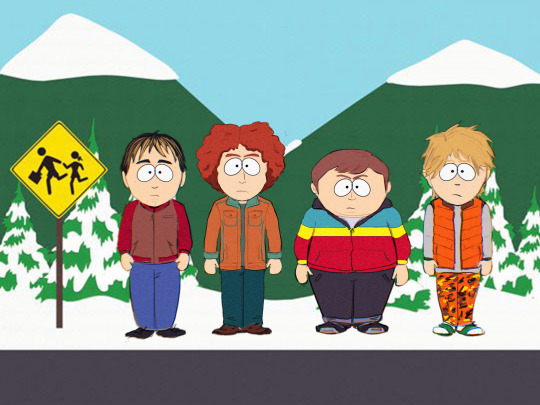
cringe ass older south park headcanons
top is what I personally envision for the boys, bottom is designed following canon designs and colors (down to hair, nose shapes, and types of clothes that appear on show):
Stan was easiest to design, I simply copy pasted Trey's 90s look and the type of casual sweaters he'd wear. If not that, then bomber jackets (bottom) his canon leg shape is weird, but meh, what can ya do.
Kyle, I think would keep wearing an ushanka and wear the nicer clothes of the boys-- he'd still wear normal clothes like pants and a jacket, the thing is his jackets are from places like Nordstrom bc he's arguably the richest of the boys (I guess stan's a close second, maybe tie?). With his hat off, it's his crazy Matt 90s hair. I'm very fond of it. So fun to draw hgjfkd
Cartman likes to present himself nicely, but is paradoxically lazy. So he styles his hair neater than the other boys but wears a simple hoodie or jacket and onea those ugly calf-high cargo pants. Bottom design tho is his nicer clothes (also the one that has his full palate on display) Funny enough, he's the only one with a zit free face thanks to a rigorous skincare routine that would put Patrick Bateman to shame. I'd like him to keep those sharp, thin eyebrows his child design has as opposed to the canon designs which are fuller. He looks more evil and frees up space in his face
Kenny I had an absolute blast designing! I loved hawaiian shirt Kenny from PC, and wouldn't ya know it, there's a ton of hawaiian shirts out there adorned with promiscuous women and gore. Very south park. Very Kenny. though, that shirt cost a pretty penny so he'd most likely wear a cheap sweater and a puffer vest (the orange one is literally the cheapest thing you can buy on walmart hgjfkd). I wanted to spice up his pallet and gave him cool orange cargo pants!! No changes to his footwear. Literal genius move on the crew's end.

ummm yeah anyways yeah this was so funnn except for choosing cartman's nose shape bc fuck that. he's got like 3 canon noses to choose from and each nose gives him a new vibe wtf. I can't decide which to choose, I might make that it's own post. anwyays glasses cartman supremacy!!
#south park#cel speaks#eric cartman#stan marsh#kyle broflovski#kenny mccormick#character design#lmao lookit me taggin that as if i know what im doin#I feel it's a sin to not obscure kenny's face or at least his mouth but I couldn't figure anything out :(#I thought of him wearing a scarf but that along with his crazy hair disrupted his silhouette...#idk maybe a teen kenny is his Clarity Era hfgjks#i don't have to point it out but i will anywayyysss I kinndaa changed the boys' body shapes on the top iteration bc I have Thoughts#Stan seems like he has broad shoulders#Kyle's got a rectangular body with long proportions#Cartman's grown out of his hunch (i kinda dont like his canon hunch fhhj) and has a pear shape body#indeed there is truth in his childhood moniker#but the canon complient designs I kept that hunch dont worryyyy#Kenny's twiggy bc of his rancid diet (he gives most of his food to karen anyways)#cels doodles
232 notes
·
View notes
Note
I'm uhhh obsessed with your Kenny and Kyle designs they are so fucking good !!! Super tall Kyle gang for real and the details on your Kenny character designs are top notch 👍👍👌👌👌
BRO, thank you so much!! Super tall Kyle 🔛🔝 fr. And Kenny just feels like the kind of guy who doesnt look trustworthy but is actually the most trustworthy guy you'll ever know.
#south park#south park au#kyle broflovski#kyle south park#kenny mccormick#kenny south park#the kenny paradox
18 notes
·
View notes
Text
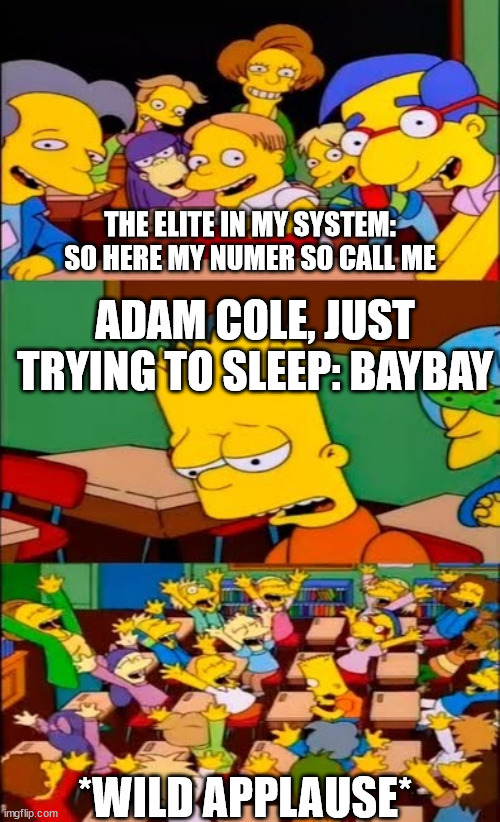
system harrasement for Adam cole tonight
5 notes
·
View notes
Text
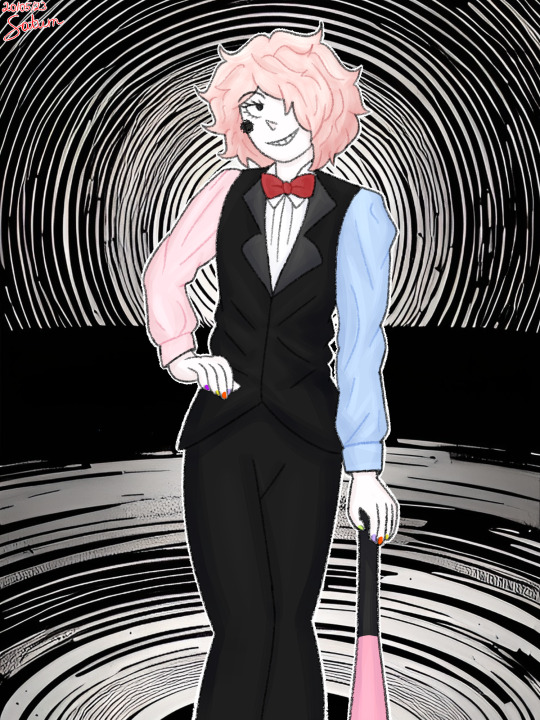
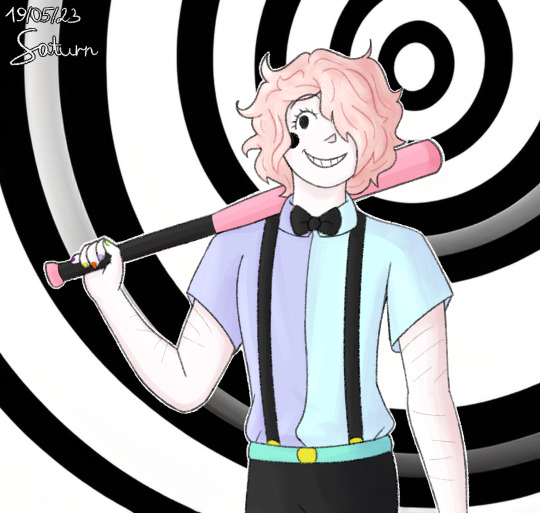
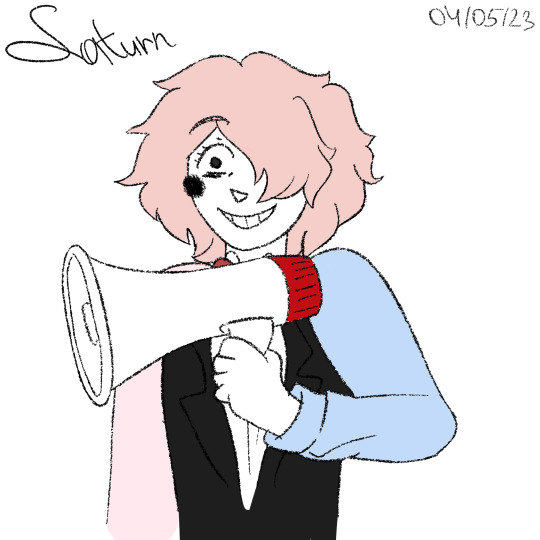
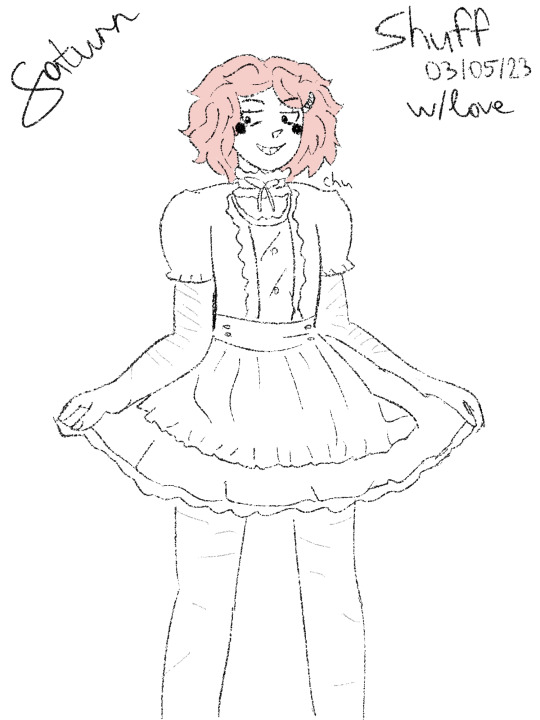
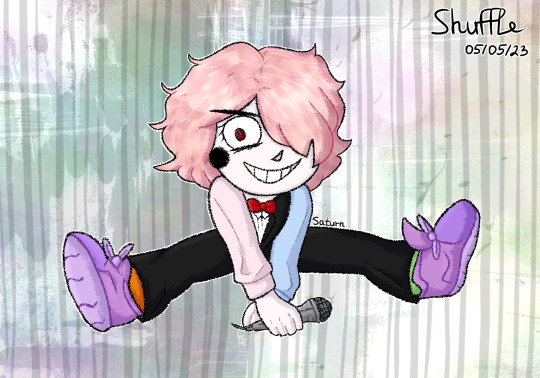
HELLO AND @veeeffvee THANKS AGAIN FOR INSPIRATION. I LIKED YOUR GHOST FAN FUSIONS SM SO I DECIDED TO DRAW ONE. QUITE A LOT???
I even gave him a name
✨Shuffle✨
I love Chris and Kennith so much so. yeah I gave them and their fusion much info and headcanons. hope you enjoy it
let's get started
✨Shuffle✨ is the fusion of Christopher and Kennith
He loves TV shows, design, music, gothic architecture, and smashing mirrors and faces of his bullies with a metal bat.
He has a pink metal bat, a microphone and a megaphone (I thought that would be a good mix of Chris and Kenny's stuff).
Shuff is quite a joyful and cheerful fusion. Easy-going, big hearted and broad minded, but tricky if he has any intention. Usually he doesn't carry violence first— only as a defense. During self-defense, he becomes ruthless since he doesn't feel sorry for the aggressors— he will attack and move on as if nothing happened.
Shuffle is rather less (passive-)aggressive and less impulsive than Christopher but he is much more brave and sharper than Kennith.
From Christopher, the fusion has a pronounced theatricality and mannerism— it won't be difficult for him to make the right impression and play out the right emotion. The only difference is that Shuff is actually able to feel emotions unlike Chris. The latter has a long way to develop and express his emotions.
From Kennith, Shuff has a vision of the world as an opportunity to turn any of his ideas into reality. Shuff is not shy at all about experimenting with many things— the eccentricity comes entirely from Kennith.
Kennith himself is a simple boy, he is very sincere. Thus the fusion is very communicative, talkative and has zero hesitation. Similarly with Christopher— this goes well with independence from the opinions of others and the ability to protect himself.
The main difference between Shuff and both of them is that he has a basic trust in the world, although that sounds like a paradox.
Shuffle doesn't mind doing anything active and social. However, Shuff will never do what might be annoying for one of his halves. Kennith dislikes to be watched by a crowd, and Christopher can't stand to be idle, either. Therefore, we find a compromise and something in between.
Shuffle is independent from his creators, he has his own will, his own personality and own hobbies. He is not just an appendage of Chris and Kennith. Although Shuff is very impressionable and sometimes not the most stable, especially in the case of a mental breakdown of one of his halves (often Kennith).
~Headcanons~
▷ Christopher is 190 cm (6'3") tall. Kennith is 165 cm (5'5") tall. Shuffle is 267 cm (8.76), very tall fusion
▷ Christopher plays in the theater. Kennith is passionate about technology and works in a modest electronics store (he graduated from high school and gave himself a couple of years to save money for college). Shuffle has skills in both of these areas but he isn't such a fan of electronics. He prefers social and active work
▷ Christopher is still able to transform into his shadow (distortionist) form or simply summon dark arms from his back. Shuffle can do that too :))) and this is the best feeling for Kennith in the fusion, and outside of it too, hugging and cuddling with six arms is great
▷ Crispy's sharp tongue and his perception greatly affects Kennith both in the relationship and inside of the fusion. Learning self-defense and reflecting back on himself, so to say
▷ His pronouns— Shuffle uses both 'I/me' and 'we/us' depending on his mood
▷ Shuffle has scars on his body. On his hips and arms most of all, the wrists, forearms and elbows are covered with striped scars. But Shuff doesn't have burn scars— he is afraid of fires
▷ Shuff looks at his scars with severe sadness. The scars are a reminder of his most difficult time when everyone was against him (Kennith, honey, all these b!tches will burn in hell which you will set up for them together with Chris). Shuff felt how helpless Kennith was during that time, and feels bitter that he couldn't help him
▷ Shuffle likes to wear colorful socks
▷ Shuffle likes to crunch his fingers and all bones
▷ If you think about their relationship, Christopher felt very bad about Kennith's scars. Usually a sense of justice only works towards Crispy, but he was surprised when he felt the same towards Kenny. Chris is of the same sexuality as him, and he would have smashed all who disagreed, to pieces with a metal bat. Also Christopher taught Kennith how to use a bat don't change my mind
▷ If Chris acts on a momentary decision, Shuff thinks about his feelings here and now. That is, first he feels, and then decides. Chris lacks empathy (which he began to develop in the relationship), but Shuff has enough of it, especially for himself
▷ Shuff knows how to be cheeky, this is both toxic from Chris and hostility to the world from Kenny
▷ Shuff drinks a barrel of wine at once. He doesn't get drunk at all
▷ Yes, Christopher loves red semi-sweet wine
▷ The first time Chris and Kennith fused, Shuffle was unstable and had a slightly different design. For example, unstable Shuff had pink hair with parts of white and chaotic mixed clothing from both members
j'aime mon garçon
#the distortionist#christopher pierre#crispy#kennith simmons#chriskennith#communications#communications case 2#ghost and pals#ghost and pals fanart#ghostandpals#ghost#Shuffle#Shuffle the fusion
39 notes
·
View notes
Text

ROLEPLAY HISTORY !
The rules are simple! Post characters you’d like to roleplay as, have roleplayed as, and might bring back. Then tag ten people to do the same ( if you can’t think of ten, just write down however many you can and tag that number of people ). Please repost, don’t reblog!

CURRENT MUSE(S) :
Astereus Starwake, also known as the Starwake System, of our original series.
Cinnamoroll ( Sanrio ).
WANT TO WRITE :
Cha Jae-hwan ( Chimera ).
Daikichi Karube ( Alice in Borderland ).
Jang Nan-gam ( A Killer Paradox ).
Luigi ( Super Mario Brothers ).
Ma Dong-seok ( The Roundup ).
Sanji ( One Piece ).
Sun Baek ( Sense8 ).
Tatsu ( The Way of Househusband ).
Vash the Stampede ( Trigun ).
Waymond Wang ( Everything Everywhere All At Once ).
Yancy ( Adventures with Markiplier ).
HAVE WRITTEN :
Atlas ( Greek Mythology ).
Conrad ( The Dark Pictures Anthology: Man of Medan ).
Epimetheus ( Greek Mythology ).
Goncharov ( Tumblr's namesake fake film ).
Gu Ja-gyeong ( My Liberation Notes ).
Dark ( Adventures with Markiplier ).
Delsin Rowe ( InFamous: Second Son ).
Handsome Jack ( Borderlands ).
Jack ( English and Appalachian Folklore )
Ken ( Barbie ).
Krieg ( Borderlands ).
Menoetius ( Greek Mythology ).
Mephistopheles ( Faust ).
Moon Knight System ( Marvel ).
Nanami Kento (Jujutsu Kaisen ).
Newton Geiszler ( Pacific Rim ).
Pikachu ( Pokémon ).
Pochita / Chainsaw Devil ( Chainsaw Man ).
Prometheus ( Greek Mythology ).
Rhys Strongfork ( Borderlands ).
Rory Williams ( Doctor Who ).
Steve Harrington ( Stranger Things ).
Tenya Iida ( Boku No Hero Academia ).
The Corinthian ( Sandman ).
Timothy Lawrence ( Borderlands ).
Tony the Clock ( Don't Hug Me I'm Scared )
Wrote many characters from TellTale's the Walking Dead: Clementine, Kenny, Ben, Christa, Omid, Luke, Carlos, Nick, and Javier.
Wrote many original portrayed personified abstract forces and celestial bodies: Sun, Moon, Void / Chaos, Universe / Cosmos, every planets and dwarf planets of the Solar System, every Zodiac sign + constellations, Life, Death, the child of Mother Nature and Father Time ( represents souls + identity + rebirth ), and The Narrative.
WOULD WRITE AGAIN :
Atlas, Gu Ja-gyeong, Mephistopheles, Moon Knight System, Nanami Kento, Pochita / Chainsaw Devil, Newton Geiszler, Tenya Iida, and the Corinthian. If ever, we'll bring back our 130+ multimuse blog with these folks at least one day. ♡

#𓁹 ༑ ࿐ྂ ⩇⩇ : ⩇⩇ ⚠︎ [ 𝙴𝚇𝙸(𝚂)𝚃 : 𝙶𝙾𝙳 ] * ‹ OOC . ›#𓁹 ༑ ࿐ྂ ⩇⩇ : ⩇⩇ ⚠︎ [ 𝙴𝚇𝙸(𝚂)𝚃 : 𝙶𝙾𝙳 ] * ‹ GAMES . ›#[ I stole this and you should too! be gay and do crimes! ]#[ anygays I had to really use my mental power to Remember ]#[ and. Damn... ]
7 notes
·
View notes
Text
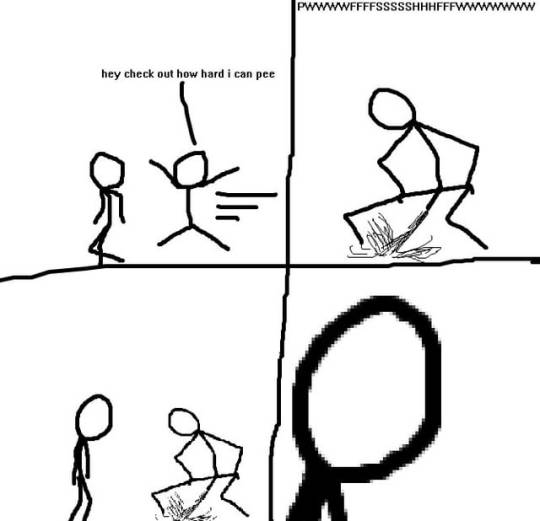
hey check out how many b10 characters i can name off the top of my head
Ben Prime, Ben 23, Albedo, Gwen, Gwen 10k, Ben 10k, Ultimate Ben, Max, Kevin, Mad Ben, Mad Rook, No Watch Ben, Bad Ben, Benzarro, Aggregor, Addwaitya, Zombozo, Sandra, Carl, Natalie, Julie, Kai, Argit, Esther, Blonko, Shi, Shim, Young One, Da, Bralla, Phil, Vilgax, Animo, Tetrax, Myaxx, Kra'ab, Six Six, Seven Seven, Eight Eight, Khyber, Zed, Blukic, Driba, Paradox, Eon, Charmcaster, Hex, Jerry from inhuman resources, Tiffin, Vulkanos, Zs'Skayr, Cooper, Lucy, Ken, Kenny, Devlin, Devin, Helen, Manny, Pierce, Alan, Reiny, Albedo, Zenith, Gatorboy, Moldywarp, Pakmar, Milleous, Attea, Looma, Herve, Clyde, Vera, Rhomboid, Octagon, Ma, Pa, Pretty Boy, Michael, Bezel, Sir George, Dagon, Billy, Nesmith, Jennifer, Elena, Scout, Vexx,
I could go on but I'm gonna go to bed now
Tremble before my might!!
10 notes
·
View notes